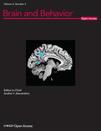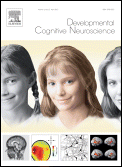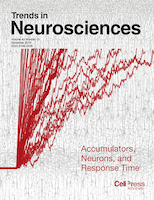
LATERALITY
Scope & Guideline
Pioneering Research on Cognitive and Neurological Insights
Introduction
Aims and Scopes
- Cerebral Lateralization Research:
Focuses on the neural mechanisms underlying handedness, footedness, and other forms of lateralization, investigating how these aspects relate to cognitive and emotional processing. - Behavioral Asymmetries:
Examines how lateralized behaviors manifest in both human and non-human species, including studies on motor skills, perceptual biases, and social behaviors. - Methodological Innovations:
Emphasizes the development and application of novel methodologies for assessing lateralization, such as advanced imaging techniques and behavioral assessments. - Interdisciplinary Perspectives:
Encourages contributions from various fields, including psychology, neuroscience, ethology, and sociology, to provide a comprehensive understanding of laterality. - Cultural and Environmental Influences:
Explores how societal factors, cultural contexts, and environmental conditions interact with biological aspects of lateralization.
Trending and Emerging
- Emotional Processing and Lateralization:
There is a growing focus on how emotional states are lateralized, with studies investigating the right-hemisphere dominance for certain emotions like fear. - Lateralization in Non-Human Species:
Research is increasingly expanding to include various non-human species, examining lateralization in animals such as birds, mammals, and insects, thereby broadening the scope of the field. - Impact of Developmental Factors:
Emerging studies are looking at how factors like prenatal hormone exposure affect laterality, suggesting a deeper understanding of the developmental underpinnings of lateralization. - Cultural Influences on Laterality:
Investigations into how cultural contexts and societal norms influence lateralization patterns are becoming more prominent, highlighting the interplay between biology and environment. - Innovative Measurement Techniques:
The introduction of new methodologies and technologies, such as transcranial Doppler ultrasound and online behavioral assessments, is enhancing research capabilities in lateralization studies.
Declining or Waning
- Traditional Handedness Studies:
Research centered solely on handedness without considering broader lateralization factors is becoming less frequent, as the field shifts towards more integrated approaches. - Static Models of Lateralization:
The reliance on fixed, binary models of left vs. right lateralization is waning, with a growing preference for dynamic and nuanced views of lateralization in brain function. - Overemphasis on Human Subjects:
There is a noticeable reduction in studies exclusively focused on human participants, reflecting a trend toward comparative studies involving various species to understand lateralization. - Simple Correlational Studies:
Research that only correlates handedness with singular behavioral outcomes is declining, as more complex interactions and underlying mechanisms are being prioritized.
Similar Journals

BRAIN AND COGNITION
Pioneering Research in Cognitive ProcessesBRAIN AND COGNITION, published by Academic Press Inc Elsevier Science, stands as a vital resource for researchers and practitioners in the realms of cognitive neuroscience and psychology. Established in 1982, the journal has continuously evolved, showcasing cutting-edge research that bridges the understanding of brain functions and cognitive processes up to 2024. With an impressive impact factor reflecting its commitment to high-quality scholarship, the journal currently holds a prestigious Q1 ranking in Arts and Humanities (miscellaneous) and notable Q2 rankings in various psychology fields, including Cognitive Neuroscience, Developmental and Educational Psychology, Experimental and Cognitive Psychology, and Neuropsychology. This multidisciplinary journal cultivates a rich academic dialogue, offering valuable insights to professionals, researchers, and students alike. Although it does not offer open access, its robust indexing in Scopus and consistent contribution to important discussions in cognitive research define its critical role in advancing knowledge and innovation in the cognitive sciences.

Brain and Behavior
Exploring the Nexus of Neuroscience and Behavior.Brain and Behavior is a premier open-access journal published by WILEY, dedicated to advancing the field of Behavioral Neuroscience. With its ISSN 2162-3279, the journal has established itself as a vital resource for researchers, professionals, and students alike, fostering the dissemination of cutting-edge research since its inception in 2011. Renowned for its rigorous peer-review process, it enjoys a commendable Q2 ranking within the field, reflecting its impactful contributions and relevance in the scientific community. The journal not only emphasizes innovative studies that bridge behavioral science and neuroscience but also serves as a platform for diverse methodologies and interdisciplinary approaches. Accessible [open access](https://onlinelibrary.wiley.com/journal/21623279), Brain and Behavior invites submissions that explore the neural mechanisms underlying behavior, aiming to engage a global audience eager to expand the boundaries of knowledge in this dynamic field. Positioned in the heart of the United States, at 111 River St, Hoboken, NJ, it is strategically placed to collaborate with leading institutions and researchers worldwide.

SOCIAL COGNITION
Unveiling the complexities of social thought and behavior.SOCIAL COGNITION, published by GUILFORD PUBLICATIONS INC, stands as a prominent journal in the fields of Developmental and Educational Psychology and Social Psychology, holding a commendable Q2 ranking in both categories as per the latest 2023 metrics. With an ISSN of 0278-016X, this journal has been a vital resource for researchers and practitioners since its inception in 1996, showcasing rigorous empirical studies and theoretical advancements that inform our understanding of social behavior and cognitive processes. While operating under traditional access options, the journal's diverse range of topics makes it essential reading for those exploring the intricacies of human thought and interaction, with its Scopus ranking reflecting its significance in contemporary psychological research. The editorial board seeks to further advance knowledge in this domain through innovative methodologies and interdisciplinary approaches, ensuring that SOCIAL COGNITION remains invaluable to its readership based in the United States and beyond.

BEHAVIORAL AND BRAIN SCIENCES
Illuminating the Pathways of Human Behavior and CognitionBehavioral and Brain Sciences, published by Cambridge University Press, is a pivotal journal focusing on the interdisciplinary fields of Behavioral Neuroscience, Neuropsychology, and Physiological Psychology. With a history dating back to 1978 and ongoing through 2024, this journal serves as a vital platform for researchers, professionals, and students seeking to advance their understanding of brain-behavior relationships. Despite its current Q3 classification in various categories as of 2023, Behavioral and Brain Sciences is recognized for its insightful articles that foster discussions among professionals in the field. While it operates on a subscription model, the journal ensures broad access through individual and institutional subscriptions. Researchers will find this journal not only valuable for publishing their work but also for accessing a diverse range of scholarly articles that address contemporary issues in neuroscience and psychology, thereby enhancing the academic discourse within these evolving fields.

CLINICAL EEG AND NEUROSCIENCE
Illuminating the Pathways of Brain FunctionCLINICAL EEG AND NEUROSCIENCE, published by SAGE Publications Inc, stands as a pivotal journal in the fields of neurology and neuroscience, with a focus on the latest research and advancements in clinical electroencephalography and neurophysiology. Since its inception in 1970, the journal has provided a platform for rigorous scholarly work, offering valuable insights into neurological disorders and EEG technology. With its current categorization in the Q2 and Q3 quartiles across various subfields of medicine and neurology, it ranks prominently in the Scopus database, emphasizing its significance in academic discourse. The journal's commitment to disseminating high-quality research is underscored by its open access options, facilitating broader accessibility to its published findings. For researchers, clinicians, and students alike, CLINICAL EEG AND NEUROSCIENCE remains an essential resource for keeping abreast of the evolving landscape of neurological studies.

COGNITIVE AFFECTIVE & BEHAVIORAL NEUROSCIENCE
Illuminating Connections: Understanding the Neuroscience of Mind and ActionCOGNITIVE AFFECTIVE & BEHAVIORAL NEUROSCIENCE (ISSN: 1530-7026, E-ISSN: 1531-135X) is an esteemed journal published by SPRINGER that aims to advance the understanding of the interplay between cognitive processes, affective states, and behavioral responses in the field of neuroscience. Established in 2001, the journal provides a rigorous platform for disseminating high-quality research, with a significant focus on both Behavioral Neuroscience and Cognitive Neuroscience. Classified in Q1 and Q2 quartiles for 2023, it ranks highly within its categories, holding positions of #37 out of 88 and #46 out of 115 respectively in the Scopus listings. Although not an open-access publication, readers can access a wealth of valuable insights and innovative findings that enrich the scientific community's understanding of brain function and behavior. The journal's emphasis on interdisciplinary research contributes to its esteemed reputation, making it a vital resource for students, researchers, and professionals striving to explore the complex nature of the human mind and behavior.

Developmental Cognitive Neuroscience
Illuminating the pathways of brain development and behavior.Developmental Cognitive Neuroscience is a leading interdisciplinary journal published by ELSEVIER SCI LTD, dedicated to advancing the field of cognitive neuroscience with a specific focus on the developmental aspects of brain function and behavior. Since its inception in 2011, this Open Access journal has continued to thrive, gaining significant recognition with a remarkable impact factor that places it in the Q1 category of cognitive neuroscience, ranking 22nd out of 115 in Scopus. This enhances its visibility and accessibility to a global audience, including researchers, clinicians, and students keen on exploring the intricate relationship between cognitive development and neurological processes. The journal embraces a wide array of topics, from the impact of early life experiences on cognitive outcomes to neurodevelopmental disorders, fostering an enriching platform for disseminating high-quality research and innovative findings. As it progresses towards 2024, Developmental Cognitive Neuroscience remains pivotal in shaping future research and understanding in the field.

Biological Psychiatry-Cognitive Neuroscience and Neuroimaging
Pioneering Discoveries in Neuroimaging and PsychiatryBiological Psychiatry-Cognitive Neuroscience and Neuroimaging is a leading interdisciplinary journal published by Elsevier, focusing on the convergence of biological psychiatry, cognitive neuroscience, and advanced neuroimaging techniques. With its prestigious Q1 rankings across essential categories such as Biological Psychiatry, Cognitive Neuroscience, and Neurology (clinical), this journal is at the forefront of research that examines the complexities of mental health through innovative methodologies. Covering a broad spectrum of topics from neurobiological mechanisms to clinical applications, it aims to provide a platform for scholars and practitioners to exchange insights on mental disorders and their neurobiological underpinnings. The impact factor and Scopus rankings further underscore its importance, with rankings highlighting its position in the top percentiles of related disciplines. By fostering an open exchange of ideas and promoting cutting-edge research, this journal is an essential resource for researchers, professionals, and students dedicated to advancements in the understanding and treatment of psychiatric and neurological conditions.

TRENDS IN NEUROSCIENCES
Pioneering Insights for Neuroscience ProfessionalsTRENDS IN NEUROSCIENCES, published by CELL PRESS, is a leading journal in the field of neuroscience, offering cutting-edge insights and important developments in the rapidly evolving landscape of brain research. With an impressive Impact Factor and ranking in the top quartile (Q1) of the category for Neuroscience (miscellaneous), it is positioned as a vital resource for researchers and professionals seeking to stay abreast of the latest discoveries and trends from 1978 to the present. Specifically ranked #3 out of 113 in General Neuroscience by Scopus, this journal promotes the interdisciplinary exchange of ideas and knowledge, making it an essential platform for students and experienced scholars alike. Although it is not an Open Access journal, its value lies in its rigorous peer-review process and commitment to maintaining the highest standards of academic integrity. By continuing to explore the complexities of neural processes and behavior, TRENDS IN NEUROSCIENCES plays a crucial role in shaping the future of neuroscience research and education.

Frontiers in Human Neuroscience
Connecting Minds: Where Neuroscience Meets Behavioral ScienceFrontiers in Human Neuroscience is a premier open access journal published by FRONTIERS MEDIA SA, dedicated to advancing the understanding of the complexities of human neuroscience. With an ISSN of 1662-5161, the journal has established its prominence in various fields, achieving a Q2 ranking in categories such as Behavioral Neuroscience, Neuropsychology and Physiological Psychology, and Psychiatry and Mental Health as of 2023. Since its inception in 2008, Frontiers in Human Neuroscience has consistently contributed to the scholarly dialogue by offering a platform for innovative research that bridges the gap between neuroscience and behavioral science. The journal's rigorous peer-review process and commitment to open access ensures that findings are readily available, promoting collaboration and progress within the academic community. With an impact on neuroscience disciplines, it stands at the forefront of the field, inviting researchers, professionals, and students alike to engage with cutting-edge studies and developments. The journal's address is located in Lausanne, Switzerland, where it continues to flourish as a hub for neurobiological exploration.